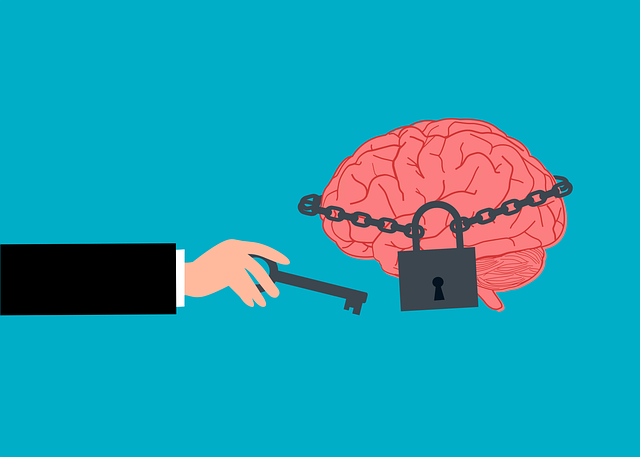Littleton Psychological Testing Therapy offers tailored stress management workshops leveraging evidence-based techniques and dynamic facilitation methods. By addressing internal and external stressors, these programs equip individuals with tools like mindfulness, empathy, and self-compassion to mitigate mental and physical health impacts of stress. Workshops cater to diverse learning styles, foster community support, and utilize interactive exercises, real-life examples, and gamification for maximum knowledge retention. Success is measured through comprehensive assessments tracking emotional resilience, life satisfaction, and behavioral changes, ensuring continuous improvement tailored to clients' evolving needs.
Stress management workshops are powerful tools for individuals and organizations seeking to enhance well-being. This comprehensive guide explores how such workshops can be designed and facilitated effectively, with a case study focusing on the successful approach of Littleton Psychological Testing Therapy. By delving into stress causes and impacts, this article provides insights into creating engaging sessions that drive positive change, measured by tangible workshop outcomes. Discover strategies to navigate stress in today’s fast-paced world.
- Understanding Stress: Unveiling the Impact and Causes
- The Role of Workshops in Stress Management
- Designing Effective Stress Management Workshops
- Facilitation Techniques for Engaging Participants
- Measuring Success: Evaluating Workshop Outcomes at Littleton Psychological Testing Therapy
Understanding Stress: Unveiling the Impact and Causes

Stress is a pervasive aspect of modern life, affecting individuals across various demographics and lifestyles. Understanding its impact is paramount for effective management. In Littleton Psychological Testing Therapy, professionals often delve into the multifaceted nature of stress, recognizing that it stems from both internal and external factors. These can include demanding work or academic schedules, personal relationships, financial constraints, health issues, and even cultural norms. By identifying specific triggers, individuals can begin to navigate stress in healthier ways.
The consequences of unmanaged stress are profound, impacting not just mental health but also physical well-being. Research highlights that chronic stress is linked to increased risk of cardiovascular disease, weakened immune systems, and heightened anxiety or depression. Compassion Cultivation Practices and Emotional Regulation techniques emerging from therapeutic research offer promising tools for mitigating these effects. These practices encourage individuals to cultivate mindfulness, empathy, and self-compassion, thereby fostering better emotional well-being promotion techniques and enhancing their ability to manage stress responsively.
The Role of Workshops in Stress Management

Stress management workshops play a pivotal role in equipping individuals with effective tools to combat daily pressures and promote overall well-being. These structured programs, often led by professionals like those at Littleton Psychological Testing & Therapy, offer a safe space for learning and growth. Through interactive exercises, discussions, and skill-building sessions, participants gain insights into managing stress through various techniques, fostering resilience in their personal and professional lives.
Workshops cater to diverse needs, focusing on aspects such as emotional intelligence—a key component in understanding and regulating emotions, especially in challenging situations. Moreover, they contribute to healthcare provider cultural competency training by teaching professionals to address stress-related issues within a nuanced, culturally sensitive framework. By participating in these workshops, individuals not only enhance their ability to handle stress but also develop strategies that positively impact their mental health and overall quality of life.
Designing Effective Stress Management Workshops

Effective stress management workshops require a thoughtful design process to cater to the diverse needs and preferences of participants. At Littleton Psychological Testing & Therapy, we understand that each individual’s journey with stress is unique. Therefore, our workshop designs focus on creating an engaging and interactive environment where attendees can gain valuable tools for coping. We integrate a mix of evidence-based techniques, including Self-Awareness Exercises and Communication Strategies, to empower participants with skills that enhance their mental health education.
Workshop facilitators play a crucial role in guiding participants through this process. They must be adept at creating a safe space where open discussions around stress triggers, coping mechanisms, and emotional expression are encouraged. By combining theoretical knowledge with practical exercises, these sessions become dynamic and impactful. Whether it’s through group activities, mindfulness practices, or role-playing scenarios, well-designed workshops foster a sense of community and support, ultimately helping individuals navigate their personal stress labyrinths effectively.
Facilitation Techniques for Engaging Participants

Engaging participants in stress management workshops requires dynamic facilitation techniques that cater to diverse learning styles. At Littleton Psychological Testing Therapy, we emphasize interactive approaches such as group discussions, role-playing scenarios, and mindfulness exercises. These methods not only break monotony but also encourage active participation, fostering a collaborative environment where ideas are freely shared and explored. By incorporating real-life examples and case studies relevant to healthcare providers, our workshops effectively illustrate burnout prevention strategies, enhancing emotional intelligence and overall mental health policy analysis and advocacy among attendees.
Effective facilitators adapt their styles to keep the energy high, ensuring every participant feels valued and motivated. This involves using visual aids, storytelling, and even gamification elements to simplify complex concepts related to stress management. By making the learning experience both entertaining and informative, we maximize knowledge retention and inspire participants to implement self-care practices in their professional and personal lives, ultimately contributing to improved well-being and reduced burnout rates among healthcare providers.
Measuring Success: Evaluating Workshop Outcomes at Littleton Psychological Testing Therapy

At Littleton Psychological Testing Therapy, measuring success goes beyond mere attendance. We evaluate workshop outcomes through a multifaceted approach, focusing on both quantitative and qualitative data to ensure meaningful impact. Post-workshop surveys gauge participants’ perceived improvements in stress management techniques, emotional resilience, and overall life satisfaction. These insights are invaluable for refining our programs and tailoring future sessions to better meet the evolving needs of our clients.
Moreover, we track long-term behavioral changes using self-reported progress logs and periodic check-ins. By encouraging participants to adopt Self-Care Practices and Resilience Building techniques, we aim to promote sustained Emotional Well-being Promotion Techniques. This holistic evaluation method allows us to quantitatively demonstrate the positive shifts experienced by individuals who engage in our workshops, fostering a culture of continuous improvement at Littleton Psychological Testing Therapy.
Stress management workshops play a pivotal role in empowering individuals to navigate life’s challenges. As evidenced by Littleton Psychological Testing Therapy’s successful outcomes, these structured programs can significantly reduce stress levels and enhance overall well-being. By combining educational content with interactive facilitation techniques, organizations like Littleton Psychological Testing Therapy contribute to creating healthier, more resilient communities. This article has explored the comprehensive approach to designing and delivering effective stress management workshops, offering valuable insights for both professionals and individuals seeking to tackle stress head-on.














